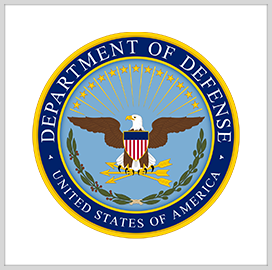Dovarius Peoples, chief information officer of the U.S. Army Corps of Engineers, will officially join the General Services Administration on Oct. 6 to serve as its new deputy CIO, Federal News Network reported Friday.
He succeeds Beth Killoran, who left in May 2023 for the Government Accountability Office to serve as the congressional watchdog’s CIO.
“We are thrilled to welcome Dovarius – a leader who is passionate about improving government services through technology – to GSA, where he will play a pivotal role in shaping the future of our organization,” GSA CIO David Shive said in an email statement.
Since April 2019, Peoples has been serving as CIO/G-6 at the Army Corps of Engineers, where he works as the principal adviser to the Corps Commanding General on information technology-related matters.
According to FNN, he has helped USACE advance its zero trust implementation, application modernization efforts and transition to a hybrid cloud environment.
Peoples also served as the association CIO for the Office of Personnel Management for two years.













